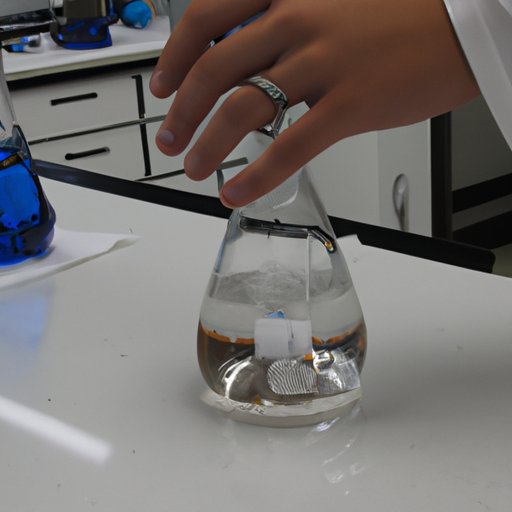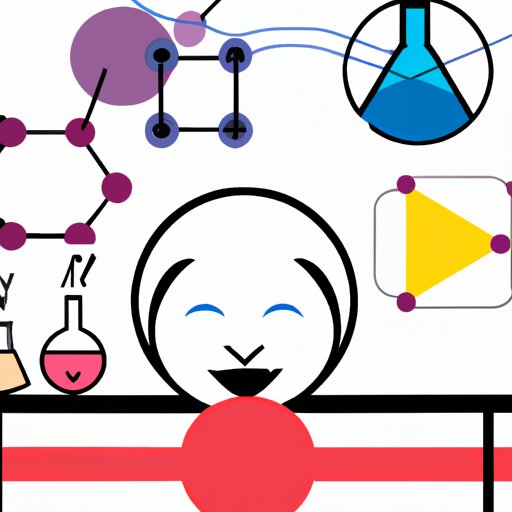Introduction
Chemistry is a branch of science that studies the composition and properties of matter, as well as the changes it undergoes. It has been described as “the central science,” as it connects and forms the foundation for many other scientific disciplines. But what exactly is chemistry, and how does it relate to other fields of science? This article will explore the role of chemistry in science and its various applications in everyday life.
The Basics of Chemistry and Its Impact on Other Sciences
At its core, chemistry is the study of atoms and molecules and their interactions with one another. It is concerned with elements and compounds, as well as their properties and reactions. Understanding these fundamental principles of chemistry is essential to other branches of science, such as physics and biology.
Chemistry and physics have a strong relationship; both are concerned with the behavior of matter and energy. While chemistry focuses on the structure of matter and its reactions, physics looks at the forces that act on matter and the laws that govern them. For example, the principles of thermodynamics, which deal with the transfer of energy, are used in both chemistry and physics.
The relationship between chemistry and biology is also important. Chemistry is essential to understanding biological processes, as it helps us comprehend the structure and function of cells, proteins, and other molecules involved in metabolism. In addition, biochemistry is the study of the chemical processes that occur within living organisms, making it an integral part of both chemistry and biology.

Investigating the Applications of Chemistry in Everyday Life
Chemistry plays a major role in almost every industry and technology. It is used to manufacture products like pharmaceuticals, plastics, paints, dyes, and cosmetics. It also helps us understand the environment and develop ways to protect it, such as by analyzing air and water quality.
In addition, chemistry has numerous applications in our everyday lives. From the food we eat and the clothes we wear, to the medicine we take and the fuel we use, chemistry affects almost everything. It can even help us keep ourselves safe, as many safety protocols, such as fire safety measures, are based on chemical processes.

Examining the History of Chemistry and Its Contributions to Science
Chemistry has a long and rich history, dating back to ancient times. Early chemists studied alchemy, which was the precursor to modern chemistry. Over time, chemists developed new theories and techniques, such as the law of conservation of mass and the development of the periodic table of elements.
Throughout history, chemistry has made significant contributions to science. For example, Marie Curie’s work in radiochemistry led to the discovery of two new elements—radium and polonium—and her pioneering research laid the groundwork for the development of nuclear physics. Similarly, Dmitri Mendeleev’s formulation of the periodic table revolutionized the way we think about and classify elements.
Analyzing the Impact of Chemistry on Human Health and Well-Being
Chemistry has had a profound impact on human health and well-being. It has enabled us to develop treatments for diseases and illnesses, as well as medications to improve our overall quality of life. It has also allowed us to create safer and more effective vaccines and other medical treatments.
However, there are potential risks associated with chemistry. The improper use of chemicals can lead to environmental contamination and health hazards. Furthermore, some chemicals may be toxic or carcinogenic, so it is important to use them safely and responsibly.
Conclusion
In conclusion, chemistry is an essential branch of science that has a wide range of applications in our everyday lives. It is closely related to other fields of science, such as physics and biology, and has made significant contributions to our understanding of the world. Finally, chemistry has had a tremendous impact on human health and well-being, both positively and negatively.
(Note: Is this article not meeting your expectations? Do you have knowledge or insights to share? Unlock new opportunities and expand your reach by joining our authors team. Click Registration to join us and share your expertise with our readers.)
